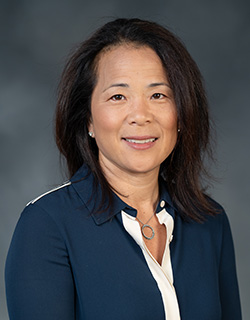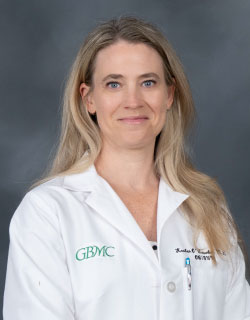The Truth About Menopause
March 28, 2024
Menopause. It’s such a defining period in an adult woman’s life, yet little is communicated or discussed about it outside of the doctor’s office.
Even the definition of menopause is often misconstrued.
“Menopause means the cessation of menstruation for 12 months with no other identifiable cause,” Kimberly Kesler O’Rourke, MD, board-certified OB-GYN with GBMC Health Partners Perinatal Associates, said. “A lot of the problems or symptoms you hear about are actually perimenopause—getting irregular periods, hot flashes, mood swings—but menstruation hasn’t technically ceased yet. There are some people who go 12 months with no period and it's not technically menopause for other various medical reasons.”
Menopause is one day, 12 months following your last period. On average in the United States, women are 51 when this occurs, but it can happen anywhere between 45-60 years of age, and the symptoms, such as the ones Dr. Kesler O’Rourke described, can begin much earlier. If menstruation ceases prior to 45 years of age, it would be considered premature ovarian failure.
“At that point, we would definitely want to look for a root cause and potentially treat with hormones as there are increased risks of low estrogen when starting that young,” Dr. Kesler O’Rourke said. (More on hormones in Part 2)
In the first 12 months to two years after menstruation stops, ovaries are still producing some hormones, just not enough to release an egg. This stage—when hormones are still present, just not as much as usual—is when women begin to feel most symptomatic.
When the brain senses less estrogen, it increases the Follicle-Stimulating Hormone (FSH) to stimulate the ovaries to make more. The ovaries respond by making more estrogen and then the FSH decreases. But the ovaries don’t have much left, so it goes back down quickly. This rapid back and forth between the ovaries and FSH is what causes symptoms. Dr. Kesler O’Rourke compares it to a fireworks show.
“When you first get your period in puberty, your hormones are very high. It's the very beginning and you're very symptomatic. You get PMS, bad periods, and then you even out,” she said. “Fireworks are going off steadily until toward the end of the show when they start to bang out really quickly—‘pow, pow, pow, pow, pow.’ And then you hear the last couple slowly pop off before it's over. That's sort of what your ovaries are doing because there are fewer eggs left, making less hormone. Once you get through that menopausal transition and the hormones are just low and stable, most people feel okay.”
Hormonal levels can vary significantly within just an hour, making it challenging to rely on them as indicators for diagnosing menopause or determining the appropriate hormone replacement dosage. However, OB-GYNs can test for FSH and estradiol levels to identify unusual cases, such as women who experience perimenopausal symptoms before the age of 45.
Dr. Kesler O’Rourke recommends preparing your body as early as possible for this change, including a healthy lifestyle of eating clean and exercising regularly, specifically lifting weights to maintain muscle mass that can often be lost along with estrogen levels.
“Without resistance training, women begin to lose muscle mass in our 30s, and the metabolism goes with it. This really hits hard when menopause occurs,” she said. “When you’re in your forties, take advantage of those hormones still being around and stimulate your muscle mass so your body is ready for the change in hormone levels. The earlier, the better!”
Menopause may seem like something women deal with in the dark, but as more women become gynecologists and experience these symptoms themselves, they can be better advocates and stewards of navigating this journey with women.
“We're in a place now where women are the ones hearing this and treating it, and so we're experiencing it ourselves,” Dr. Kesler O’Rourke said.
Talk to your doctor about your unique history and get help navigating symptoms today.





